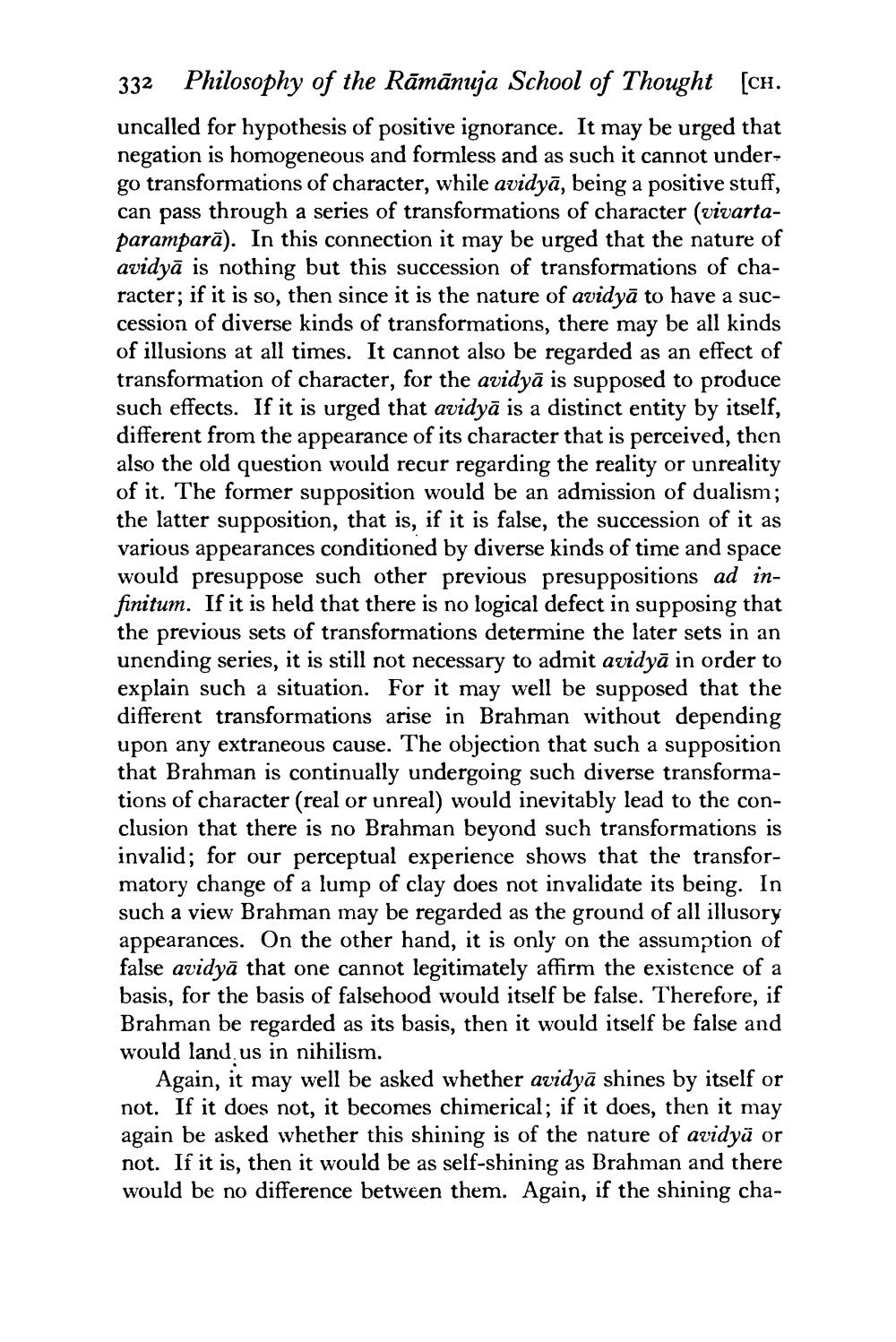________________
332 Philosophy of the Rāmānuja School of Thought [ch. uncalled for hypothesis of positive ignorance. It may be urged that negation is homogeneous and formless and as such it cannot undergo transformations of character, while avidyā, being a positive stuff, can pass through a series of transformations of character (vivartaparamparā). In this connection it may be urged that the nature of avidyā is nothing but this succession of transformations of character; if it is so, then since it is the nature of avidyā to have a succession of diverse kinds of transformations, there may be all kinds of illusions at all times. It cannot also be regarded as an effect of transformation of character, for the avidyā is supposed to produce such effects. If it is urged that avidyā is a distinct entity by itself, different from the appearance of its character that is perceived, also the old question would recur regarding the reality or unreality of it. The former supposition would be an admission of dualism; the latter supposition, that is, if it is false, the succession of it as various appearances conditioned by diverse kinds of time and space would presuppose such other previous presuppositions ad infinitum. If it is held that there is no logical defect in supposing that the previous sets of transformations determine the later sets in an unending series, it is still not necessary to admit avidyā in order to explain such a situation. For it may well be supposed that the different transformations arise in Brahman without depending upon any extraneous cause. The objection that such a supposition that Brahman is continually undergoing such diverse transformations of character (real or unreal) would inevitably lead to the conclusion that there is no Brahman beyond such transformations is invalid; for our perceptual experience shows that the transformatory change of a lump of clay does not invalidate its being. In such a view Brahman may be regarded as the ground of all illusory appearances. On the other hand, it is only on the assumption of false avidyā that one cannot legitimately affirm the existence of a basis, for the basis of falsehood would itself be false. Therefore, if Brahman be regarded as its basis, then it would itself be false and would land us in nihilism.
Again, it may well be asked whether avidyā shines by itself or not. If it does not, it becomes chimerical; if it does, then it may again be asked whether this shining is of the nature of avidyā or not. If it is, then it would be as self-shining as Brahman and there would be no difference between them. Again, if the shining cha




